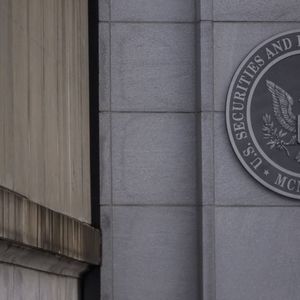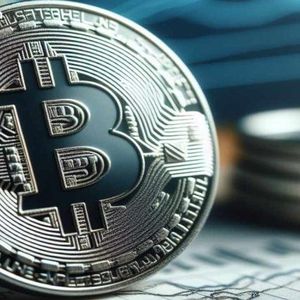BitcoinWorld DeFi Regulation: Urgent Progress for Decentralized Innovation The world of decentralized finance, or DeFi, is buzzing with innovation, but it also faces a significant challenge: the need for clear and appropriate regulation. As this rapidly evolving sector matures, a crucial question emerges: should the rules that govern traditional financial institutions also apply to the unique, code-driven nature of DeFi? This is precisely the question the DeFi Education Fund (DEF), a prominent crypto lobby group, is tackling head-on. They are advocating for a more nuanced approach to DeFi regulation in the United States, one that thoughtfully distinguishes between the developers building these decentralized protocols and the centralized entities operating within the broader digital asset space. Understanding the Call for Nuanced DeFi Regulation The DEF recently submitted a comprehensive response to the Senate’s request for information regarding its proposed digital asset market structure bill, famously known as the Responsible Financial Innovation Act. This move underscores the urgency with which the DeFi community seeks regulatory clarity and a framework that fosters, rather than stifles, innovation. The core of their argument revolves around creating a regulatory environment that understands the fundamental differences between traditional financial intermediaries and truly decentralized protocols. According to reports from The Block, the DEF’s letter outlined four pivotal goals for the upcoming legislation. These goals are designed to shape a regulatory landscape that is both effective and conducive to the growth of decentralized technologies. Let’s break down these key objectives: Distinction Between DeFi Developers and Centralized Firms: This is perhaps the most critical point. The DEF argues that the role of a developer who writes open-source code for a decentralized protocol is fundamentally different from that of a centralized company offering financial services. Treating them identically could lead to unintended consequences, potentially stifling the very innovation DeFi promises. Clear Definitions for Intermediaries: The digital asset space is complex, with various participants. The DEF advocates for precise legal definitions that clearly identify which intermediaries are required to register with the government and under what circumstances. This clarity is essential for both compliance and consumer protection. Criteria for Truly Decentralized Protocols: How do we determine if a protocol is genuinely decentralized? The DEF proposes establishing clear criteria to make this determination. This would help regulators understand when a protocol truly operates without a central point of control, distinguishing it from projects that merely use the term ‘decentralized’ without embodying its core principles. Technology-Neutral Regulatory Framework: Instead of crafting rules specific to certain technologies (like blockchain or smart contracts), the DEF urges for a framework that focuses on the function or activity being performed, regardless of the underlying technology. This approach ensures that regulations remain relevant as technology evolves and avoids stifling innovation through outdated or overly prescriptive rules. This proactive stance by the DEF follows the U.S. House of Representatives’ own progress, with the passage of its market structure bill, the Digital Asset Markets Clarity Act. These legislative efforts signal a growing recognition in Washington of the need to address digital assets, and the DeFi community is making its voice heard to ensure a sensible path forward. Why is Differentiating Between Centralized and Decentralized Entities So Important for DeFi Regulation? The distinction between centralized and decentralized entities is not merely semantic; it’s foundational to effective DeFi regulation . Centralized entities, like traditional banks or centralized crypto exchanges, have identifiable control points, boards of directors, and often hold customer funds. This makes them amenable to existing regulatory frameworks designed for intermediaries. DeFi protocols, on the other hand, often operate via immutable code on a blockchain, governed by decentralized autonomous organizations (DAOs) or token holders. There might be no single person or entity in control after a protocol is launched and decentralized. Applying regulations meant for centralized intermediaries to these decentralized systems could: Stifle Innovation: Developers might be hesitant to contribute to open-source DeFi projects if they fear being held liable for the actions of a global, permissionless protocol over which they have no ongoing control. Create Regulatory Absurdity: Who would a regulator fine or imprison if a truly decentralized protocol, governed by thousands of anonymous token holders, somehow violated a rule? The concept of ‘responsible party’ becomes elusive. Push Innovation Offshore: Overly burdensome or inappropriate regulation could force talented developers and innovative projects to move to jurisdictions with more accommodating frameworks, diminishing the U.S.’s role in the future of finance. To illustrate the key differences, consider the following: Aspect Centralized Entities (e.g., Traditional Banks, Centralized Exchanges) Decentralized Protocols (DeFi) Control & Governance Single entity, board, or small group of executives. Clear chain of command. Code-driven, community-governed (e.g., DAOs, token holders). No central authority post-decentralization. Intermediary Role Directly facilitates transactions, holds assets, acts as trusted third party. Automated protocols execute transactions based on code. No human intermediary. Liability & Accountability Clear legal entity responsible for operations, compliance, and user funds. Distributed responsibility. Often, the code itself is the ‘executor,’ and liability is complex. Regulatory Applicability Traditional financial services regulations (e.g., KYC, AML, licensing) are directly applicable. Requires a new, tailored approach to avoid over-regulation or misapplication of rules. DeFi Regulation: Urgent Progress for Decentralized Innovation The Push for Federal Preemption in DeFi Regulation Another critical aspect of the DEF’s proposal is the call for federal regulations to override state laws. Currently, the regulatory landscape for digital assets in the U.S. is a patchwork of varying state-level rules. This creates significant complexity and uncertainty for developers and projects that operate across state lines or globally. Imagine a DeFi protocol developer trying to comply with 50 different sets of state-specific rules. It’s an insurmountable task that drains resources and discourages innovation. A unified federal framework for DeFi regulation would provide much-needed clarity, consistency, and a level playing field. It would: Reduce Compliance Burden: Developers could focus on building rather than navigating a labyrinth of disparate state laws. Foster a National Market: A consistent regulatory environment encourages broader participation and investment across the U.S. Enhance U.S. Competitiveness: A clear, federal framework could position the U.S. as a leader in DeFi innovation, attracting talent and capital that might otherwise go to more regulation-friendly jurisdictions. What are the Challenges and Benefits of this Approach to DeFi Regulation? While the DEF’s proposals offer a clear path forward, implementing such nuanced DeFi regulation is not without its challenges. Regulators face the daunting task of understanding complex, rapidly evolving technology and distinguishing between genuine decentralization and mere decentralization theater. There’s also the challenge of balancing innovation with consumer protection and national security concerns, especially in a borderless digital realm. However, the benefits of adopting a thoughtful, tailored approach to DeFi regulation are substantial: Unleashing Innovation: Clear rules reduce uncertainty, encouraging developers to build and experiment within defined boundaries. Investor Confidence: A well-defined regulatory framework can increase investor confidence, attracting more capital into the DeFi ecosystem. Consumer Protection: By focusing on genuine risks without stifling innovation, regulators can create effective safeguards for users. Maintaining U.S. Leadership: A proactive and sensible approach to DeFi can solidify the U.S.’s position as a global financial technology hub. The DEF’s advocacy is a vital step in shaping the future of finance. Their efforts highlight a growing consensus that effective DeFi regulation must be bespoke, recognizing the unique characteristics of decentralized technologies while upholding core regulatory objectives. As legislative discussions continue, the clarity and foresight proposed by groups like the DEF will be instrumental in ensuring that innovation in the digital asset space can thrive responsibly. Conclusion: Paving the Way for a Robust DeFi Future The push by the DeFi Education Fund for a more intelligent and tailored approach to DeFi regulation marks a significant moment in the ongoing dialogue between innovation and oversight. By emphasizing the crucial distinction between decentralized developers and centralized entities, advocating for clear definitions, promoting technology-neutral frameworks, and seeking federal preemption, the DEF is laying the groundwork for a regulatory environment that truly understands and supports the unique potential of decentralized finance. This thoughtful engagement with policymakers is essential for fostering a robust, secure, and innovative DeFi ecosystem that benefits all participants. The outcome of these legislative efforts will undoubtedly shape the trajectory of decentralized finance for years to come. Frequently Asked Questions (FAQs) What is the DeFi Education Fund (DEF)? The DeFi Education Fund (DEF) is a crypto lobby group dedicated to advocating for sensible and nuanced regulation of decentralized finance (DeFi) in the United States. They engage with policymakers to educate them on DeFi’s unique characteristics and push for frameworks that foster innovation. Why does the DEF want to distinguish between DeFi developers and centralized entities? The DEF believes that DeFi developers, who often contribute to open-source code for decentralized protocols, have a fundamentally different role and risk profile than centralized financial intermediaries. Treating them identically could stifle innovation and misapply traditional financial regulations to systems without central control. What is a technology-neutral regulatory framework? A technology-neutral regulatory framework focuses on the function or activity being performed (e.g., lending, trading) rather than the specific technology used (e.g., blockchain, smart contracts). This approach ensures regulations remain relevant as technology evolves and prevents stifling innovation by not being overly prescriptive about specific tech stacks. What is federal preemption in the context of DeFi regulation? Federal preemption means that federal laws would override conflicting state laws. For DeFi, this would create a unified national regulatory framework, eliminating the current patchwork of varying state-level rules. This consistency aims to reduce compliance burdens for developers and foster a more cohesive market. How might new DeFi regulation impact innovation? Clear, tailored DeFi regulation , as proposed by the DEF, is expected to foster innovation by reducing uncertainty for developers and projects. When rules are clear and appropriate, builders can innovate with greater confidence, attracting more capital and talent to the U.S. DeFi ecosystem. Did you find this article insightful? Share it with your network on social media to spread awareness about the crucial efforts shaping the future of DeFi regulation ! To learn more about the latest crypto market trends, explore our article on key developments shaping DeFi regulation institutional adoption . This post DeFi Regulation: Urgent Progress for Decentralized Innovation first appeared on BitcoinWorld and is written by Editorial Team













